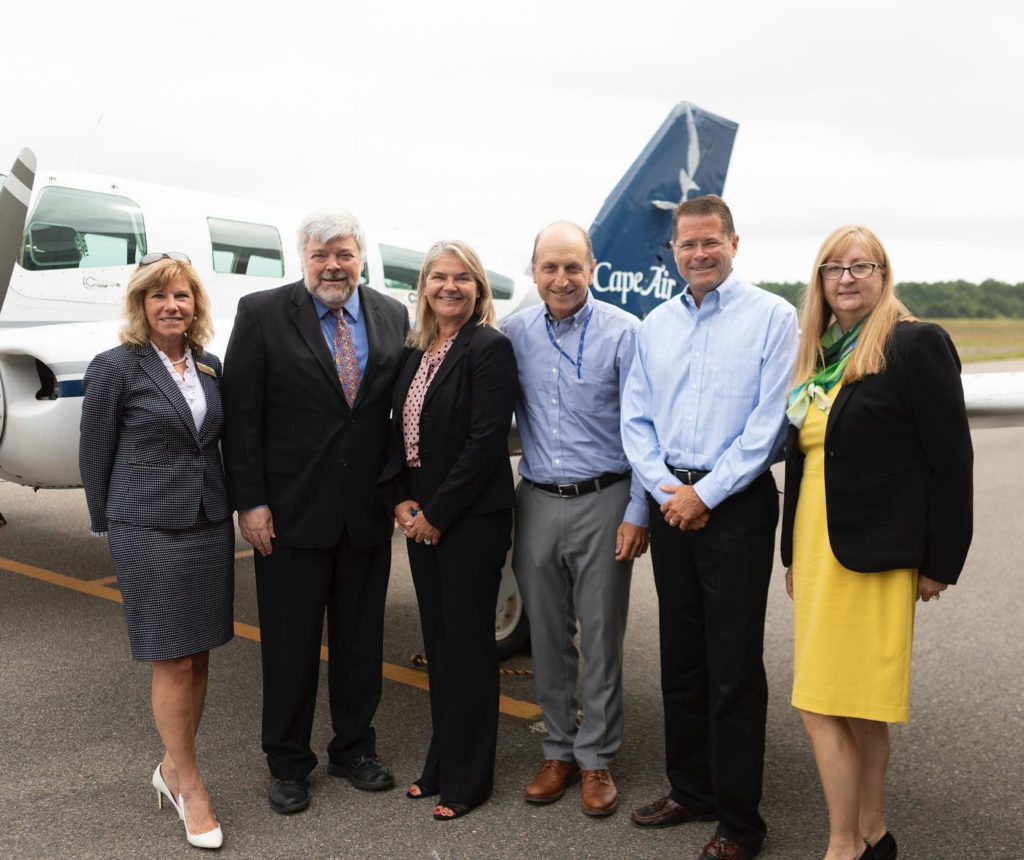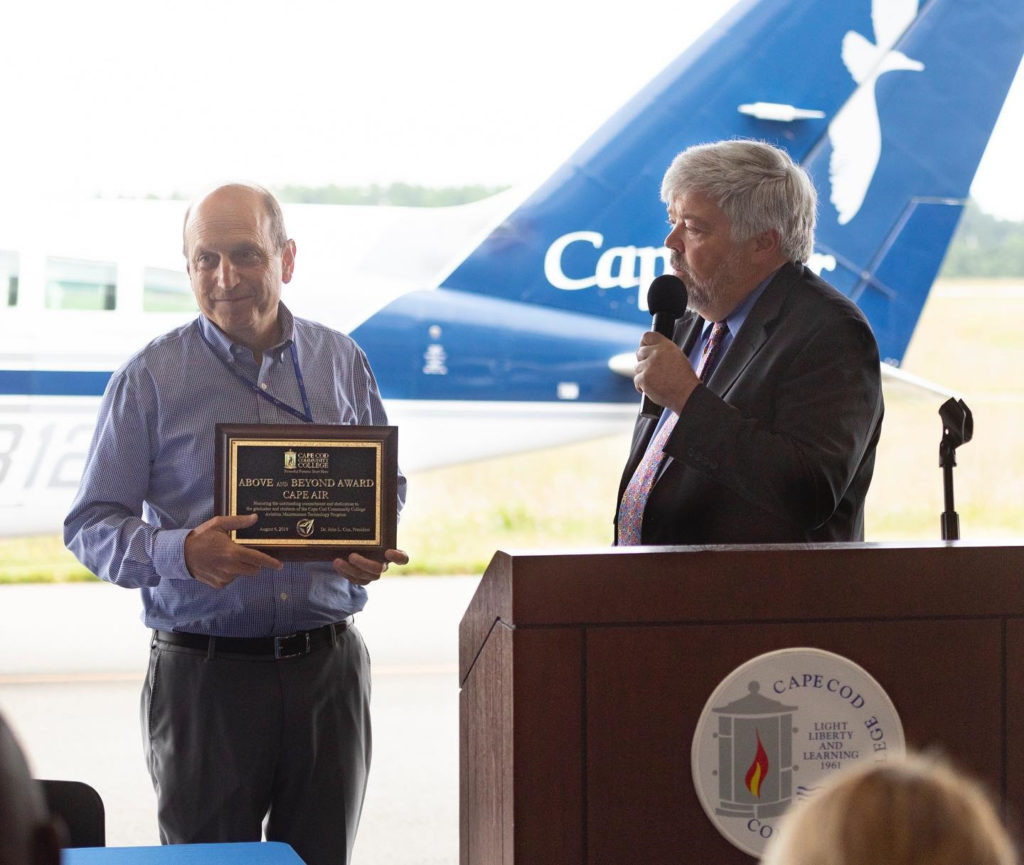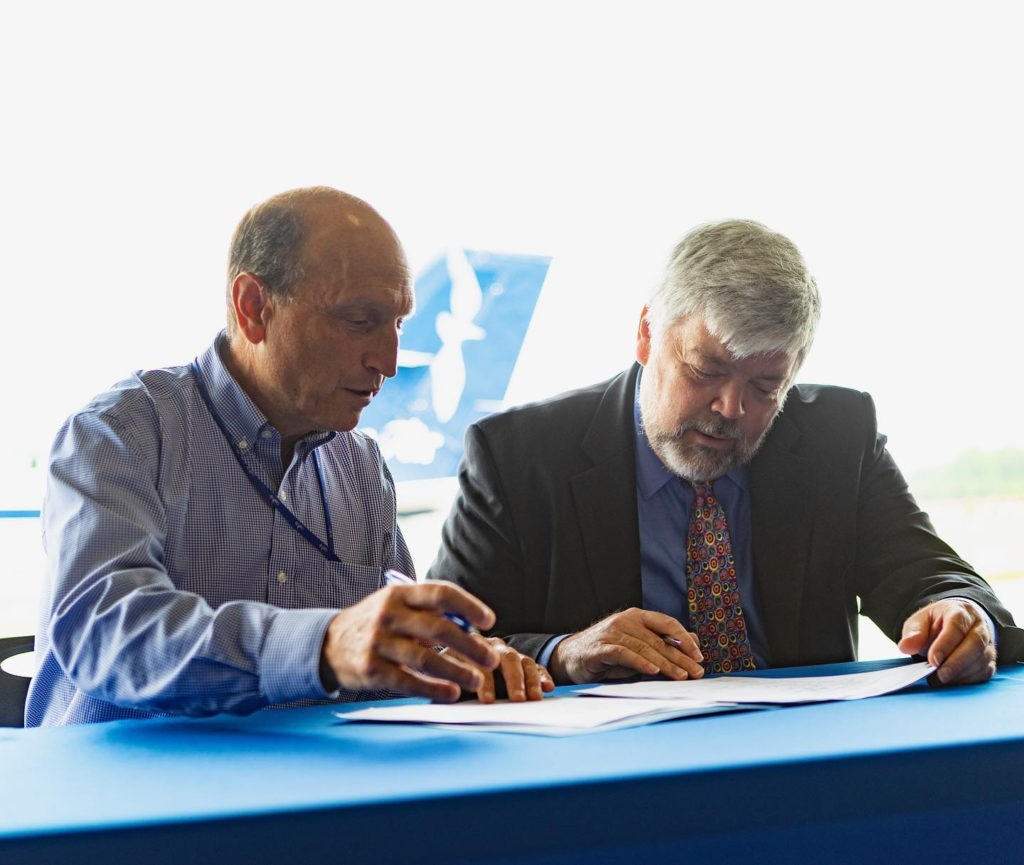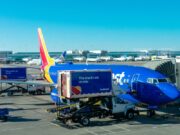
In support of aviation education and talent development, Cape Air will gift Cape Cod Community College’s Aviation Maintenance Technology Program with a second Cessna 402C, nine passenger, twin-engine aircraft. Having two identical aircraft on campus will enable students and faculty to work across a total of four matching engines, resulting in a consistent learning experience.
The college’s unique, 15-month Aviation Maintenance Training (AMT) program, housed at Plymouth Municipal Airport, meets a critical need for highly skilled technicians in airframe and power plant repair —including full FAA Certification. For the program itself to be certified to deliver a comprehensive maintenance, repair and overhaul curriculum, it is critical for students to have the opportunity to train on working aircraft. The Cessna 402C will also benefit students who are working towards the completion of training on airframe, including fuselage, wings and electronics systems.

“Supporting aviation education and the cultivation of new talent is something we are extremely proud to be a part of,” said Linda Markham, President of Cape Air. “We have been actively supporting Cape Cod Community College’s Aviation Maintenance Technology Program since its inception, when we donated our first aircraft. To see the program and its students continue to grow and thrive is a great asset to our entire community and the aviation industry as a whole.”
“We are immensely appreciative to Cape Air for their commitment to our AMT program, and to the success of our students,” said John Cox, President of Cape Cod Community College. “One of the key components of this program is that our students work on real, functioning aircraft at our hangar in Plymouth as part of their training. Because of Cape Air’s support and dedication to supporting this important program, our students will continue to gain valuable hands-on experience.”
Since launching in September 2016, Cape Cod Community College has served more than 110 students in the AMT program. What started as several small cohorts of students has grown substantially, with new cohorts beginning in September, January, and May.

In addition to aircraft donation, Cape Air continues to collaborate with the college to bolster its aviation curriculum as well as provide a pathway for graduates pursuing a future in aviation maintenance. From access to Cape Air’s senior leadership and technical support to career development pathways, Cape Air remains a steadfast partner of the program and its students. Cape Air currently has three graduates from the program actively working within fleet maintenance and operations, as well as two current students assisting in mechanics until graduation and certification testing is complete.




















































































































